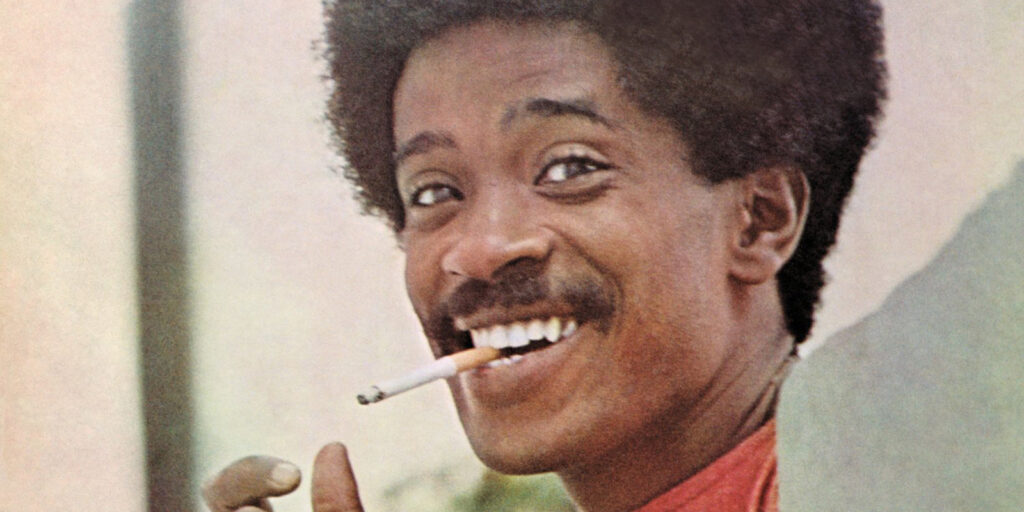
Saturday May 18th, 5:00 PM – House of Hard Bop.
Vibraphonist Bobby Hutcherson (1941-2016) started recording records under his own name for Blue Note Records in 1963. The label soon gave him carte blanche. Alfred Lion, one of the founders of Blue Note: “Listen, you make all the albums you want. Just call me and you can record.” The counter will increase to more than twenty titles (1977). In 1968, tenorist Harold Land stood next to Hutcherson in the studio, as co-leader. The result is the album Total Eclipse; five pieces that move stylistically smoothly between hard bop and beyond – towards previously untrodden territory.
The vibraphone was one of the less popular instruments in the 1960s. Yes, there was Lionel Hampton, Milt Jackson, but one of the first to bring the vibraphone into the new style developments was Bobby Hutcherson (photo). In 1963 it was altoist Jackie McLean who replaced the piano in his quintet with Hutcherson’s vibraphone. One Step Beyond was the title of that Blue Note record. And a year later it is Eric Dolphy who goes one step further stylistically in his masterpiece Out to Lunch! Also no piano, Hutcherson on the vibes. (“Out” here means: outside the boundaries of the conventional rules of the game. “Beyond”, a similar meaning.)
In addition to Hutcherson and Land, the quintet line-up on Total Eclipse consists of pianist Chick Corea – here in the early stages of his career -, bassist Reggie Johnson and drummer Joe Chambers. We previously heard tenorist Harold Land in House of Hard Bop (on April 20, 2024) in the quintet of Clifford Brown & Max Roach. That was 1955. Since then his development has not stood still. Its elastic tone formation is in balanced contrast with the ‘cool’ sound of the vibes.
Herzog
The average Herzog is the spicy opening of the series. The three soloists hand over their calling cards, accompanied by timekeepers Johnson and Chambers. The energy radiates from it. Do we hear a Coltrane influence here and there in Harold Land’s solo?
Total Eclipse
Cooling down – slow tempo, theme with broad tones, meditative atmosphere. But…it doesn’t stay that way.
Matrix
Four of the five pieces are by Hutcherson, Matrix is by Chick Corea. It is on his album Now He Sings, Now He Sobs, which he recorded a few months earlier. The theme opens with two deceptively simple melody lines: an ascending major scale, starting on the third, which, after an interruption by piano and drums, returns downwards to the root note, now with a minor third. Sounds simple, but it works! All this, by the way, is rhythmically richly shaped. The up tempo is back. The underlying shape is that of a 12-moderate ‘blues’, but this is cunningly camouflaged.
Unacceptable behavior
That qualification concerns the last piece of the album, Pompeian, and is intended here in a positive way. Flute and marimba are new timbres. The crossing of boundaries concerns other musical parameters. Let us surprise you!
A year later, in 1969, Blue Note published the album Medina. The same line-up, but now Stanley Cowell is at the piano. Three pieces, Avis, Come Spring and Dave’s Chant complete this highly interesting hour.
(Given Hutcherson’s photo on the LP cover, his head hair grew simultaneously with his musical development. Come on, raise your head again. He died of emphysema.)
House of Hard Bop – Eric Ineke








